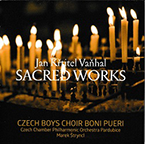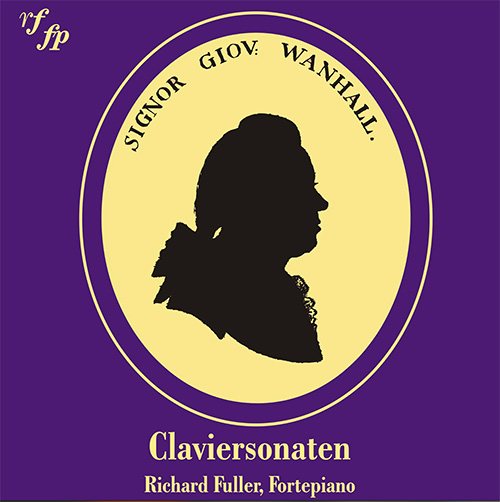News
From Patronage to Entrepreneurship in the Era of the Enlightenment
Dannice Crespo Aspiring to be a professional musician in the eighteenth century posed several socio-economic challenges. The patronage system, which gave the financial security of a full-time salary could be artistically very limiting. The entrepreneurial way, which was in its early stages, was a very risky, and mostly a daunting feat for freelancers. Not only economic and regulations, but also each countries’ societal traditions played an important role in the success or failure of the...
Whispers of Vanhal in Australia
Diana Weston This article follows on from a recording made in Sydney in October 2023 which featured a semi-restored square piano, made in Liverpool, England c. 1835. The significance of the English square piano has been under-estimated in Australia – both in terms of its qualities as an instrument and its role in our social history. Because square pianos are not being reproduced (yet), we were fortunate to acquire an original instrument requiring minimal restoration. The representative pieces...
Wanhal’s dances for the ‘Kleiner Redoutensaal’ and late eighteenth-century Viennese dance culture
ALLAN BADLEY Social dancing, in both the public and private spheres, was an integral part of life in Vienna in the late eighteenth century. Indeed, dancing was so much part of the cultural landscape that it was even the subject of a number of imperial decrees aimed at its regulation. In her recent book, The Viennese Ballroom in the Age of Beethoven, Erica Burman draws particular attention a decree issued in 1772 that opened the two imperial ballrooms (the large and small Redoutensäle) to the...
Announcement of the publication of the master’s two late masses scores
We proudly announce the publication by our association of the master's two late masses scores for the first time from the early 19th century. He may have written them on his deathbed.
After the Party: Wanhal, Storace and his Collection of Original Keyboard Music
Allan Badley One of the best known and most intriguing musical anecdotes from the late eighteenth century can be found in the entertaining if not always reliable memoirs of the Irish tenor Michael Kelly. Kelly, who spent several eventful years in Vienna performing at the Burgtheater, was well connected with many of the leading composers and performers in the city including Mozart. In his Reminiscences, Kelly relates that his friend “[Stephen] Storace gave a quartett party to his friends. The...
Wanhal at Hradek by Nechanice (CZ) on August 8, 2021, at 6 p.m.
It's a great plesure to invite you to attend a concert taking place on Sunday 8th of August 2021 at 6 p.m. in the nice castle of Hradek by Nechanice (CZ), very near to Wanhal's birthplace of Nechanice. On the program, together with small pieces of Mozart and Dvorak, Vanhal quatuor of Prague accompanying P. Hostinsky harpsichord will perform our master's concerto for harpsichord and orchestra in C. For further details please consult...
Prof.Dr. Paul Bryan’s death
Prof. Dr. Paul Bryan March 7, 1920 - March 25, 2021 Only a short time ago we celebrated 100th anniversary of our honorary president Prof. Dr. Paul Bryan. We deeply regret to announce his death to Wanhal’s community and all music lovers. Paul Bryan was a spiritual father for us. His lifelong and pioneering work (notably catalogue of symphonies) to restore our master’s importance as a composer remains alive for the posterity. This commits us to continue doing further research and all actions to...
A New Wanhal Catalogue!
It is with great pleasure that we announce that the first part of a new scholarly catalogue of the works of Waṅhal has now been published. This project is called Catalogus novus Wanhali, and it a cooperation between the University of Auckland and the University of Trondheim (NTNU). It is available through the website of the NTNU research cluster The Classical Ages (https://www.ntnu.edu/classical-ages). It is curated by Dr Halvor K Hosar, who is supported by a board of specialist scholars from...
JBWA Congratulates Paul Bryan on his 100th birthday!
It is a great pleasure to wish Paul Robey Bryan Jr. a happy centenary! More than anybody else, we have Paul to thank for the modern revival of Waṅhal’s music. Unlike a composer such as Dittersdorf, who left an elaborate autobiography that ensured that he never receded completely from view, the slim paper trail left by Waṅhal belies his status as a composer. His worth could only be gauged through his music, and it is only through Paul’s perseverance and ingenuity that this has finally been...
Robert Franenberg at BASS2018 Lucca
Robert Franenberg will be giving a lecture and recital at the Basseurope Congress (BASS2018) in Lucca, Italy on Thursday August 2 in the Boccherini Saletta Rossa. He will talk about the contrabassist/composer Johann Mathias Sperger (1750-1812) and perform his Duetto for Contrabass and Viola. Franenberg is a long-term friend and associate of the JBWA, but Sperger has also been of immense importance to Wanhal, as his manuscript of Wanhal's Contrabass Concerto is the only surviving copy of the...
JBWA remembers Michaela Freemanová
Michaela Freemanová, who had had a crucial role in research work done by the Johan Baptist Wanhal Association, died 15 June this year. She will be missed dearly by us all. Paul Bryan, honorary president of the Association, wrote the following piece in her honour: Michaela Kopecká and Michaela Freemanová: I have known you as both, but met you only a single time – in Prague in 1984. The internet, in its impersonal way, reminds me and the world about your many accomplishments as a scholar and...
World premiere of Wanhal’s Op. 6 string quartets by the Eybler Quartet
The Eybler Quartet presents the premiere period instrument recording of Wanhal’s charming and delightful early quartets, Op. 6 Nos. 1-6. Joshua Kosman of the San Francisco Chronical writes, "the charm and exuberance of his creativity shines through in this set of six string quartets… The Eybler Quartet, a Toronto period-instrument ensemble dedicated to the lesser-known composers of the 18th century, is in its element here, and gives the music the vividness and polish required.” Find out more...
Robert Franenberg at Viennese Double Bass Symposium
On June 28 & 29, JBWAs very own Robert Franenberg will talk give a talk about the double bass in divertimentos at the Viennese Double Bass Symposium at the Amsterdam Conservatory. Select examples will be given from trios and divertimentos by Wanhal. The event will also include other workshops, student recitals and instrumental expos. Time: June 28-29, 10-17 each day. Place: Amsterdam Conservatory
Dr. Martial Leroux at the Czech Embassy
On November 5 Dr. Martial Leroux held a talk on "Wanhal and Bohemian musicians in Vienna in the classical period" for a packet audience in the Czech embassy in Paris. The audience was also spoiled with two of Wanhal's string quartets. To read a resume of talk press here. (in French)
Wanhal is Composer of the Week on BBC Radio
Donald Macleod introduces a musician and composer whose prodigious gifts took him from rural Bohemia to the very top of the musical world in 18th-century Vienna, where he was celebrated alongside Haydn and Mozart, his occasional quartet partners. Vanhal's story has all the ingredients for a great musical drama: escape from bondage, early success dashed by sudden personal crisis, and a remarkable re-birth won through faith, talent and strength of character. This week, Donald Macleod explores...

Wanhal’s Sacred Works on ArcoDiva label CD – World premiere recording
These works are performed by the Czech Boys Choir Boni Pueri and soloists, backed up by the Czech Chamber Philharmonic Orchestra Pardubiceconducted by the noteworthy Czech conductor Marek Štryncl. This recording was realized with assistance of J. B. Wanhal Association.

World première recording of Wanhal’s mature and beautiful clavier sonatas
Our eminent member Dr. Richard Fuller, playing a fortepiano made by Werner Keil and based on an original by Johann Andreas Stein of Augsburg, 1788, recorded a CD of three mature and beautiful Wanhal's clavier sonatas. For further information please visit www.richardfullerfortepiano.com.
We have a new website
Presently the sole professional webpages dealing with Wanhal in the world. Today when our association, gathering first class researchers and performers, appeared on the Web, is a true event. We address not only all Wanhal fans, professionals and music lovers, but also everyone who wishes to discover his beautiful music and get acquainted with his fascinating personality. We invite you to browse through our pages and communicate interactively with us.
Recording of Wanhal’s op. 40 piano quartets
Hailed as a «Gustostück» by Austrian critics. This recording of Wanhal's op. 40 piano quartets with American fortepianist Richard Fuller and members of Peter Zajíček's Musica Aeterna Bratislava remains not only the only recording of these works, but one of the finest testimonies to Wanhal's musical genius. Virtuosic HIP (historically informed performances) yet sensitive lyrical playing and flawless ensemble artistry make this CD a must for every serious classical music listener. Limited...
Our Research Team met at the Charles University in Prague
The main issue on the agenda was how to prepare a new and expended thematic catalogue of Wanhal works. Now a catalogue format plus a new numbering system are alive. An extensive dissemination of Wanhal’s works which are preserved largely in manuscript copies all over the Europe and even beyond, reflects an important difficulty to overcome, i.e. to evaluate a physical state of the sources in the numerous locations. This is a first phase on the way to our catalogue.
Events
VANHAL at Minor Basilica of the Virgin Mary in Svatý Kopecek near Olomouc
VANHAL in OLOMOUC, FURTHER HISTORICAL CITY AFTER PRAGUE
Rendezvous with J.B.Wanhal in the Picture Gallery of Opocno Castle
World’s concert première of Wanhal’s Six Fugues for organ/pianoforte dedicated to the Archduke Rudolph of Austria
Concert «Wiener Melange»
French Premiere of Wanhal’s Stabat Mater
Wanhal’s Trauergesang in Amsterdam
European Premiere of Wanhal’s Trauergesang
Concert: Three piano trios by J. B. Vanhal, on the occasion of the 204th anniversary of his death
Wanhal String Quartet in Leeds
Vaňhal in Paris near Eiffel Tower
CD release in Varaždin
Bass master class with Robert Franenberg
Wanhal String Quartet in London
Wanhal String Quartet in Leiston
Dr. Michael Tsalka plays Wanhal in Mozart’s Salzburg
Missae Brevis and Pastoralis in Lausanne
Missae Brevis and Pastoralis in Coppet
Concert – Michael Tsalka, Böhm-piano
Concert – Richard Fuller
Concert – Karl Macourek plays Wanhal’s clavier works
Concert – Karl Macourek plays Wanhal’s clavier works
International Scientific Conference «Composer Jan Křtitel Vaňhal (1739-1813), Life and Work»
Concert – Clarinet & Pianoforte
Concert of «Vanhal String Quartet»
Concert of Czech Boys Choir «Boni pueri» and Philharmonia Hradec Králové
VANHALIA 2013
Concert «Tribute to J. B. Wanhal»
Concert – Michael Tsalka, Piano
Concert «500 Years of Keyboard Music: a Journey through Time and Continents»
Concert «Vanhal and his Contemporaries»
Concert VANHAL’S MUSIC in Haydn’s birth house with Haydn’s clavier
Concert – Piano recital
Concert «Wiener Melange»
Concert «WANHAL 200»
Concert «Meisterwerke der Wiener Klassik»
Concert in honour of JBWA honorary president Paul Bryan
Events
News
From Patronage to Entrepreneurship in the Era of the Enlightenment
Dannice Crespo Aspiring to be a professional musician in the eighteenth century posed several socio-economic challenges. The patronage system, which gave the financial security of a full-time salary...
Whispers of Vanhal in Australia
Diana Weston This article follows on from a recording made in Sydney in October 2023 which featured a semi-restored square piano, made in Liverpool, England c. 1835. The significance of the English...
